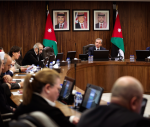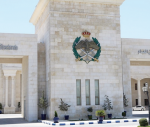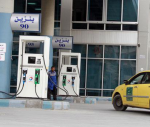You are here
Austerity plan requires genuine bonding with the Palestinian people
May 01,2019 - Last updated at May 01,2019
The shrinking Palestinian economy as a result of the major absence of liquidity requires the newly appointed Palestinian Prime Minister Mohammad Shtayyeh to carry out serious austerity measures. The absence within a short period of time of hundreds of millions of dollars from USAID projects, followed by the refusal of the Palestinian government to receive it’s low tax remittances, collected by Israel at border crossings, require major economic surgery.
The politics behind the American and Israeli decisions is quite obvious. The Americans want to squeeze Palestinians so that they will accept, or at least not oppose, a political deal that they have been working on for two years. The Israeli decisions are much less grandeur. The decision made in the heat of the Israeli election campaign to reduce part of the monthly taxes collected by Israel on behalf of Palestinians was aimed at showing how Israel takes a tough stand against Palestinians who dare raise arms against it, and against a Palestinian government that is willing to support the families of these prisoners. Israel and the US are searching for ways to engage Palestinians and to reduce the tensions that are arising daily as a result of the major reduction in the Palestinian economy. An Israeli general described the Israeli actions, during the first years of the siege on Gaza, as an attempt to force Palestinians on a diet and not to get them to die of hunger.
The proud Palestinian leadership is refusing to make any movement on the political stage, and, therefore, the only option that is left for it is to explain its position to its people with the hope that they understand. In the meantime, the Palestinian government, if it is serious about not wanting to raise taxes, has little choice but to implement some deep cuts in its own spending budget.
Shtayyeh articulated this issue in the first session of his cabinet, which he came to walking rather than in a motorcade, by announcing a moratorium on buying new cars and flying first class. A further decision to end all medical referrals to Israel was also made.
Much more is needed if the austerity plan will come close to addressing the big gap between revenues and expenses
The first cuts that are required now should be in the Palestinian security. Why does a state, under a belligerent occupation, need to keep so many people within the security forces? With the decisions of the Palestinian National Council to end the security coordination with Israel, and with the Israelis rubbing their thumbs in the Palestinian nose, why would Palestinian President Mahmoud Abbas and his government want to have a security budget that is greater than that of the health and education?
It is true that the security forces have not been expanded only to protect Israel but also to protect the ruling powers in Palestine. But if the political decisions that are being made reflect Palestinian sentiment, then there is no need for a huge force to protect a popular government and leadership that are in touch with their own people and their aspiration.
The newly appointed Palestinian government must also do a lot to further amend its relations with its people. The idea of taking revenge on political enemies, such as the blocking of salaries to civil servants in Gaza as a means to pressure Hamas, must stop. Also, the policy of punishing political opponents cannot be allowed to continue if the Palestinian government wants the public to support it as we go through the difficult months ahead. This logic also requires that all politically motivated arrests and detentions must come to a stop. No Palestinian should be jailed for expressing an opinion, no matter what that opinion is.
At the same time, friends of Palestine, whether in the Arab region or throughout the world, need to step up and help support the legitimate Palestinian government, which is simply attaching itself to international law and order. The world should not sit idly by as the US and Israel continue to flaunt international law and then punish Palestinians for their stubborn attachment to international law. If the world community feels that the Palestinian position is wrong, it will need to change international law, not be silent partners to the Americans and Israelis, who are punishing Palestinians simply because they insist that occupation needs to end and settlements are illegal.
Mahmoud Abbas and Mohammad Shtayyeh have a long and difficult month ahead as they prepare to deal with what looks like a disastrous US vision that violates international law and international practices. To be able to weather this storm, Palestinian officials need to revise their policies in such a way so that they are in total sync with their people and their aspiration. Palestinians are willing to share their government by paying the price for being steadfast to their rights. But to do that, the Palestinian government must be transparent and accountable; reflecting the will of the people and not the will of a small group that is in leadership positions.













